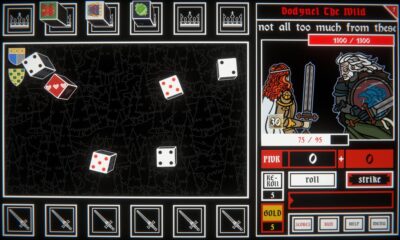Toys
A Guide to Symbolic Play: Examples and Importance

Symbolic Play:
“Symbolic play” refers to various types of imaginative games that children engage in. Their creativity serves as their guide, allowing them to transform ordinary objects into something entirely different. Symbolic play is essential for children’s social, cognitive, and linguistic development.
When children use objects to represent other things, they are engaging in symbolic play. This type of play allows them to explore their creativity and develop their storytelling skills. Symbolic play also helps children understand the concept of symbolism, a crucial aspect of literacy.
The importance of symbolic play cannot be overstated. It aids in the development of logical thinking, social skills, self-esteem, motor skills, and language and literacy abilities. Through activities like puppet shows, children can enhance their storytelling abilities and learn to express themselves creatively.
In conclusion, symbolic play plays a vital role in children’s overall development and should be encouraged and supported by parents and caregivers. Play begins to emerge in children around the age of 18-24 months. At this stage, children start to engage in simple pretend play activities, such as pretending to talk on the phone or feed a doll.
2. By the age of 2-3 years, children’s symbolic play becomes more elaborate. They may engage in role-playing games, such as pretending to be a doctor or a firefighter.
3. Around the age of 4-5 years, children’s symbolic play becomes even more sophisticated. They may create elaborate storylines and scenarios, using props and costumes to enhance their play.
4. Symbolic play continues to develop throughout childhood and into adolescence. As children grow older, their play becomes more complex and may involve themes of identity, relationships, and social issues.
Early Stage (Between 3 Months-18 Months)
From the moment of birth, your child has been absorbing information about the world by observing things and people around them.
As they start exploring their immediate surroundings, they begin to gather more knowledge.
Typically, children engage in pre-symbolic or “functional” play until they reach around 18 months of age.
During these early stages of development, the focus is primarily on orienting themselves to their environment.
Since around three months old, they have been exploring objects by putting them in their mouth, such as their fingers and toys.
Around 8 months of age, they progress to using their toys to create sounds.
So, when your child shakes a toy on the floor, appreciate it as this marks the beginning of symbolic play.
Given a few more months, they will start making their toy truck move along with the “vroom, vroom” sounds.
2. 18-24 Months
Language plays a crucial role in symbolism, as it serves as a symbol in itself.
Words represent our emotions and thoughts, making language an essential aspect of symbolic play.
During this period, your child may engage in solitary play or play alongside other children of similar age.
Look out for signs of true symbolic play, where your child follows rules and engages in imaginative play with their toys.
They might be loading passengers onto a toy train, styling a doll’s hair with a comb, or having a pretend tea party, among other activities.
This type of play is referred to as functional play by experts.
3. Preschoolers Acting Pretend (Between The age Of 3 and 5)
At this stage, children start playing alongside each other and observing their peers’ actions, known as associative play.
As children assign roles, follow structured sequences, and work with a plan, their symbolic play evolves.
Your child may take the lead in deciding what games to play with their friends.
You can witness their play turning into a mini-drama, such as playing “Mommy and Daddy” and putting the baby doll to sleep.
You might hear them talking to themselves while feeding their doll, showing the development of symbolic play.
Final Thoughts
Symbolic play is not just for fun; it offers numerous benefits for your child’s development.
Embrace this important milestone and encourage pretend play whenever possible, as children grow up quickly and move on to more complex realities.
Symbolic play plays a vital role in children’s cognitive, social, emotional, and creative development, and it is easy to incorporate into educational settings.
While most preschools allocate time for play, caregivers can also facilitate symbolic play to reinforce important concepts.
Through symbolic play, children learn to express emotions, understand cause and effect, and enhance their overall development.
Overall, symbolic play is a fundamental aspect of young children’s growth and fosters their cognitive, social, emotional, and creative skills.
-

 Destination8 months ago
Destination8 months agoSingapore Airlines CEO set to join board of Air India, BA News, BA
-

 Breaking News10 months ago
Breaking News10 months agoCroatia to reintroduce compulsory military draft as regional tensions soar
-

 Gadgets3 months ago
Gadgets3 months agoSupernatural Season 16 Revival News, Cast, Plot and Release Date
-

 Tech News12 months ago
Tech News12 months agoBangladeshi police agents accused of selling citizens’ personal information on Telegram
-

 Productivity11 months ago
Productivity11 months agoHow Your Contact Center Can Become A Customer Engagement Center
-

 Gadgets3 weeks ago
Gadgets3 weeks agoFallout Season 2 Potential Release Date, Cast, Plot and News
-

 Breaking News10 months ago
Breaking News10 months agoBangladesh crisis: Refaat Ahmed sworn in as Bangladesh’s new chief justice
-

 Toys12 months ago
Toys12 months ago15 of the Best Trike & Tricycles Mums Recommend























